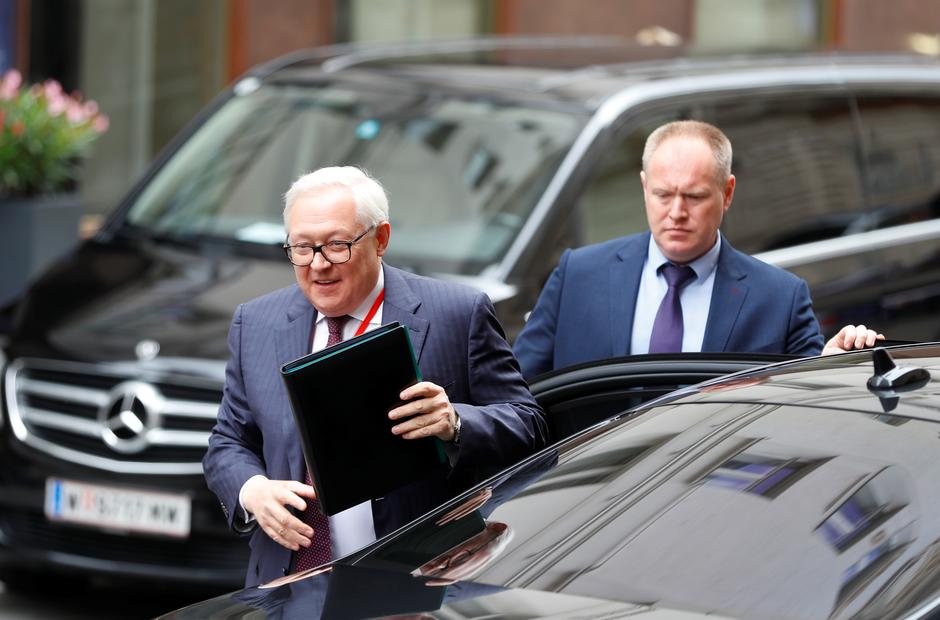The United States and Russia Monday held talks in Vienna on their only remaining major nuclear weapons accord with little prospect of imminent agreement, as critics questioned whether either side saw value in arms control.
U.S. President Donald Trump has previously insisted China should be involved in discussions to extend New START, the treaty that limits U.S. and Russian nuclear warheads, because he says Beijing has had a free pass to develop weapon systems.
The current treaty limits each side to 1,550 deployed nuclear warheads.
China reiterated that it has no intention to join the so-called China-U.S.-Russia trilateral arms control negotiations and stressed this position is "clear and consistent."
Noting that China has been actively making efforts on nuclear disarmament, the Chinese foreign ministry has urged the U.S. to stop shifting responsibility to others.
Read more:
China not to join China-U.S.-Russia arms control negotiation
U.S.-Russia arms talks: Start for New START Treaty?

U.S. envoy Marshall Billingslea and his delegation arrive for a meeting with Russian Deputy Foreign Minister Sergei Ryabkov in Vienna, Austria, June 22, 2020. /Reuters
U.S. envoy Marshall Billingslea and his delegation arrive for a meeting with Russian Deputy Foreign Minister Sergei Ryabkov in Vienna, Austria, June 22, 2020. /Reuters
After a full day of talks at the Niederoesterreich Palace in the Austrian capital, the Russian foreign ministry said only that "discussions on prospects for arms control continued, including the question of extending the New Start treaty and maintaining stability."
U.S. envoy to the talks Marshall Billingslea said on Monday evening that the talks had been "very positive."
There had been "detailed discussions" on a "full range of nuclear topics," he tweeted, without going into detail.
Billingslea added that there was "agreement in principle" between the two sides on holding a second round of talks.
Trump has already scrapped several treaties with Russia – on overflights and on intermediate-range nuclear forces.

Russian Deputy Foreign Minister Sergei Ryabkov arrives for a meeting with U.S. special envoy Marshall Billingslea in Vienna, Austria, June 22, 2020. /Reuters
Russian Deputy Foreign Minister Sergei Ryabkov arrives for a meeting with U.S. special envoy Marshall Billingslea in Vienna, Austria, June 22, 2020. /Reuters
Billingslea and Russian Deputy Foreign Minister Sergei Ryabkov headed the delegations discussing the future of New START, which was agreed in 2010 and expires in February 2021.
It is now the only arms control treaty that's still in force between the two countries.
(With input from AFP)
(Cover: A view of a test missile launch in California, U.S. on August 18, 2019. /Reuters)